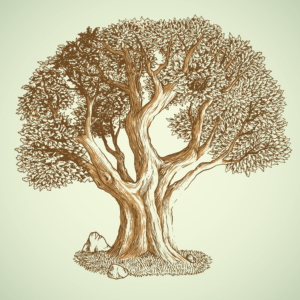
Citizen science is science that anyone can do, regardless of age, education, or ability. These projects allow ordinary people to make significant contributions and complete research that scientists may not have the time or manpower to focus on. If you’ve found yourself with a lot of free time, why not try one of the projects below and contribute to scientific research?
All projects listed below can be done with your computer or phone and an Internet connection. They were found on SciStarter.org, a compendium of citizen science projects. Feel free to use their search engine to find even more projects!
Flora and Fauna
Adrift: Help  marine scientists better understand the experiences of marine microbes.
marine scientists better understand the experiences of marine microbes.
Floating Forests: Identify kelp in images to help figure out how forests of kelp grow over time.
Monkey Health Explorer: Classify types of white blood cells in monkeys.
There’s lots of transcription help needed. Transcribing historical records can provide invaluable assistance to scientists. You can transcribe nest-record cards, field notes, data about cacti, and plant specimen labels.
You can also help researchers identify and track animals in the Italian Central Apennines, Año Nuevo Island, Minnesota, southern California, the Lolldaiga Hills in Kenya, other areas of Africa, the Russian Steppe, and even the ocean!
Medicine
Bash the Bug: Help scientists identify the presence of tuberculosis on sample plates. You can try this project on your computer or your phone!
Dream Catchers: Dream Catchers tackles SIDS (Sudden Infant Death Syndrome).
Monkey Health Explorer: Classify types of white blood cells in monkeys.
You can also try Folding@home or the World Community Grid, both of which can utilize your computer’s unused processing power to make medical advances.
Physics
Potential Penguin: Play games with an adorable penguin, learn about physics, and teach scientists how you learned. Win-win-win!
Psychology
Lab in the Wild: How do people around the world interact with technology? Take online quizzes and receive feedback, plus learn how you compare to your fellow human beings.
Project Implicit: Take online tests, which can help identify subconscious biases.
Space
AstroQuest: Use your browser to inspect galaxies for Australian scientists.
Cities at Night: Become part of an initiative to create a map of the Earth at night, using images taken from the International Space Station.
The NOVA Sun Lab: Help predict solar flares.
 Spiral Graph: Identify spiral galaxies (which may, in turn, help identify black holes!) to help decide where future telescopes should be pointed.
Spiral Graph: Identify spiral galaxies (which may, in turn, help identify black holes!) to help decide where future telescopes should be pointed.
You can also download SETI@home or Einstein@Home to utilize your computer’s spare processing power. SETI searches for extraterrestrial life; Einstein searches for pulsars!